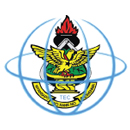Dr. Charles Sekyere, Fellow at the Brew-Hammond Energy Centre, represented the Centre at the annual ECOWAS Sustainable Energy Forum, held in Banjul, Gambia, on 18-19th September 2025.
The event, organized by ECOWAS, brought together experts, policymakers, and researchers to discuss strategies for advancing sustainable energy in West Africa. This year’s theme focused on accelerating infrastructure growth and promoting clean energy solutions across the region.
Ahead of the main conference, two pre-conference sessions were held. One focused on the validation of training models for clean mini-grids, organized by ECREEE, which gathered experts from across institutions to review and refine models for regional adoption. On September 17, another pre-conference engagement divided participants into three working groups on energy efficiency, clean cooking, and clean mini-grids. Stakeholders with ongoing projects in these areas presented their work and received feedback from invited experts.
Dr. Sekyere, who joined the energy efficiency group, commended the Energy Commission of Ghana for its progress in the field.
“From the presentations, Ghana’s Energy Commission is far ahead in energy efficiency initiatives,” he noted.
The main conference featured high-level presentations and panel discussions on diverse topics, including accelerating sustainable infrastructure in West Africa, powering food systems through energy, and advancing rural off-grid access projects.
Highlights included a presentation from the International Institute of Refrigeration on vapor compression technology for food preservation in rural communities, discussions on ECOWAS’s green hydrogen strategy, and updates on the Rural Off-Grid Energy Access Project (ROGEAP) led by ECREEE.
Reflecting on the experience, Dr. Sekyere described the forum as both exciting and insightful. While recognizing the region’s progress, he cautioned against over-reliance on international support.
“Most of the presentations showed that we always need international assistance, but sometimes we must look within. There are projects that can be undertaken locally. I called for deeper collaboration among universities and research institutions to combine forces and generate homegrown energy solutions,” he said.

